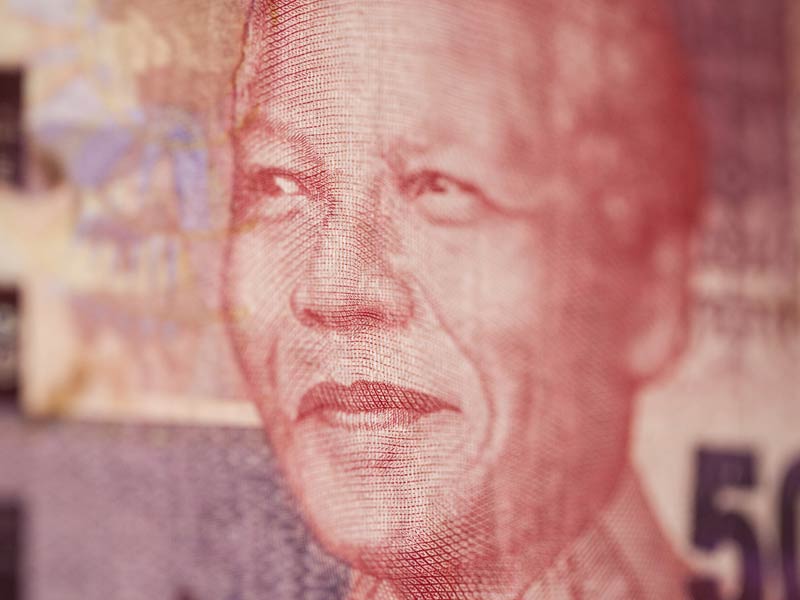Global warming, plastic pollution, antibiotic-resistant superbugs, extreme weather events, artificial intelligence, global resource depletion, social inequality, the proliferation of social media abuse and manipulation through fake news, the resurgence of political extremes with racist and nationalist overtones—these are some of the “signs of the times” that are analysed in the media as elements that could each cause radical changes in society. But why doesn’t anyone talk about the loss of patience?
Probably because in a society where time is money, to be patient is to lose. Patience is the antithesis of the instant gratification we now expect from everything, in all circumstances. Give people an easier, faster, and more efficient way of doing things and they will always follow it, at the expense of other solutions. Basically, the technological advances of the last 20 years have made patience superfluous in the modern world, at least at first glance.
The idea that we should have everything at our fingertips, our problems solved and our desires satisfied instantly is considered “the birthright of an affluent society,”[1] writes Dr David Baily Harned in his book Patience: How We Wait Upon the World. We live in a time when advertising creates desires we never imagined, and the situations and things that ask us to wait only signal that we are not yet where we should be. We still haven’t reached our potential, we still haven’t overcome our problems, we still don’t fully control our environment, we are still too weak, with too little innovativion and too little creativity. Seen in this way, the need to wait is an insult to 21st century humanity, a defiance of what we now perceive to be the natural order of things.
The fact that the idea that patience is a natural part of human life has been largely lost in the developed world can have drastic consequences. Not only does it affect relationships in society, which ultimately has a negative impact on the health of each and every one of us, but it also leads to a proliferation of short-term solutions, even in areas where long-term solutions are needed, such as politics, public administration and business, a growing number of analysts warn.
Switching on the fast forward
Science and technology have given us freedom by breaking the chains that bound us to our environment to such an extent that waiting has gone from something inherently human—where human beings waited and moved with the movements of nature—to something that happens by chance and must be remedied in order for freedom to be complete. Human progress would therefore mean emancipation from the need to wait and be patient. Until then, the gaps that remain in our imperfect universe must be filled with something, otherwise we become bored and anxious. We fill them with more activities that give us immediate satisfaction. Therefore, the more time we have on our hands, the busier we become. Being busy is a major contributor to our self-confidence in the world of homo faber, where the value of human beings is drastically reduced to their social utility, Dr Harned argues.[2] Apparent passivity, acceptance, stillness, and similar responses to life’s problems become in the eyes of others signs that we have failed to become all that we could be.
What we don’t realise is that we are caught in a paradox. The wealthier and busier we become, and the more we engage in all sorts of activities, the less we actually reduce the time we spend waiting. Faster cars and means of transport are stuck on ever busier roads and in ever more crowded skies, which means more delays, more queues, and more problems to solve. The socio-economic organisation of the developed world is so technologically driven that people are more likely to receive than to obtain, to wait and depend on factors beyond their control, on technologies they can use but cannot understand or change.
These observations led the British theologian W.V. Vanstone[3] to propose a medical revision of the idea that we have gained more control over our environment than previous generations. On the contrary, the more complex the technological systems on which we now depend, the more dependent we will become and the more we will be forced to wait for the gifts of the great gods of technology, the IT giants. In a way, you could say that only the focus has changed.
The bigger problem is that technology has already changed us. The growth of technology and the expansion of information are directly linked to a decline in empathy, patience, and concentration—what psychologists call “soft skills.” As choices diversify, long-term commitments diminish. As speed increases, patience and personal discipline decrease. As external incentives increase, internal motivation decreases. As free content multiplies, so do our expectations of getting things we don’t deserve or haven’t worked for.
All of these phenomena, applied to generations that are and will be completely disconnected from the pre-Internet world, can lead to stagnation in education, followed by stagnation in innovation and, consequently, stagnation in economic growth, warn several experts interviewed by the Pew Research Center. An information-rich society is an attention-poor society, said the famous Nobel Prize-winning American economist Herbert Simon. At the same time, it is a society paralysed by bad decisions, adds author and law professor Frank Partnoy: “Not waiting is causing us to make worse decisions and to be less focused. Our ability to think about the future is what separates us from animals, but technology is making us act instantly and make instant decisions.”
We urgently need to get back to what defines us as human beings, says Partnoy. But not to homo faber, says Harned, a concept that teaches us that all poor people deserve poverty, and one that turns unemployment, an endemic problem for any post-industrial society, from an economic problem into a spiritual crisis as people lose meaning and value in the eyes of society and in their own.
What is important now is to recognise that waiting and patience are at the heart of our lives, not because of the nature of this imperfect world, but because of who we are as human beings—created to be interdependent and incomplete in isolation from one another, Harned argues. In other words, our dignity as human beings lies in something other than what comes out of our hands. Harned and Vanstone suggest that people are not better people when they get something than when they don’t, nor when they are more active than when they are passive—ideas that we will have to address as technology takes over more and more of what is now human responsibility, and as states begin to experiment with the idea of a universal basic income.
What will man be when he is no longer homo faber? Inevitably, we return to the most defining human characteristic—sociability—where patience does not happen by chance, for how else can we have a simple conversation if we do not wait for the other person to finish what he or she has to say? Unfortunately, even this simple skill is becoming increasingly rare in today’s society. That is why it is so urgent to recover it if we want to recover our own humanity.

Patience, between indifference and impatience
It is not an exaggeration to say that patience today has plenty of negative connotations. Today, patience is often understood as silent resignation in the face of life’s adversities, and even in the writings of Christian authors, patience no longer occupies a prominent place among the concerns. Books on patience tend to be aimed at children, ignoring the fact that it is adults who, more than ever, need to re-learn what patience means, and how and when it should be applied.
Despite what you might find on the internet or in dictionaries, there are not many variations in the definitions of patience. Calm forbearance[4] or suffering without resentment; self-control and tolerance of the mistakes of others; the willingness to wait for tomorrow without frustration, undisturbed by what is happening around us, are all inseparable facets of the concept of patience. “So patience, which is the uncomplaining endurance of adversity, is a mean between impatience and indifference,” explains Harned[5]. It knows that in a functioning democratic society, some people must make room for others to express their freedom, even if this means that the latter’s initiatives may clash with what the former thinks is right. If all we can do in such situations is to wait with a patronising air for the “ignorants” to finish their work more quickly so that we can finally intervene to put things right ourselves, this is not patience but an expression of pride and determination to make the world in our own image. What appears to be patience in these cases is nothing more than “a tool for domination,”[6], Harned believes.
Nevertheless, there are situations where calls for patience turn out to be nothing more than calls for tolerance of whatever tyrants are in power and the oppression of certain social classes. There are other times when we deceive ourselves that what we are doing is being patient, on the assumption that the involvement of one person will make no difference. However, this is not patience, it is resignation. How often have we heard that all it takes for evil to win is for good people to do nothing? Taken to its extreme, resignation leads to indifference, which is the worst of all states, for it is not a victory of reason over feeling, but a total absence of feeling, a numb mind incapable of reacting. Indifference sees nothing and hears nothing; it represents a cessation of communication and reciprocity between people, which makes it very difficult to correct, as Harned points out.[7]
The Bible, patience, and injustice todayIn a modern world where there is still famine, slavery, abuse of children and women, poverty and mass murder, corruption in the highest offices, violence that drives people from their homes, families and lands, there is also much room for impatience, for cries of injustice, especially when it is not we who are the object of suffering but others. But what should we do when the Bible is used as an argument for respecting the government of a state that is guilty of so many injustices? A few years ago in the United States, public opinion succeeded in exerting enough pressure on former President Donald Trump to abandon a controversial “zero tolerance” immigration policy that separated immigrant children from their parents with whom they had entered the United States illegally, placing them indefinitely in overcrowded government facilities with questionable conditions. This victory would not have been achieved, however, if Americans had followed the lead of US Attorney General Jeff Sessions, who, in response to US Democrats calling for an end to the policy, said: “I would cite you to the Apostle Paul and his clear and wise command in Romans 13, to obey the laws of the government because God has ordained the government for His purposes.” This idea was reinforced in a press conference on the issue when Press Secretary Sarah Huckabee defended the prosecutor, saying, “It is very biblical to enforce the law.” Some Americans certainly agreed with them, while many others probably felt they had returned to the not-so-distant past when the Bible was used to defend and promote slavery. Just as then, today Bible passages are taken out of context to manipulate the audience. But if we read the Bible in its entirety, we will understand that there is no scale of values in which the freedom of a government to cause unnecessary suffering takes precedence over the need to defend those who are suffering, and the idea that a president or government has a divine mandate to do so is profoundly contrary to Scripture and salvation history. The Bible never asks people to endure for the sake of patience. In his epistle, James describes a scenario very close to what we see and experience today: a world deeply corrupt and deeply divided by social injustice, where the rich get richer—because they don’t even pay their employees, even though they make more and more money—while the poor get poorer. After being extremely harsh in his criticism of the behaviour and the people who have created this situation and are reveling in it, James turns his attention to the Christian diaspora—the powerless Christian refugees who have entered a culture that threatens to dissolve their cultural and religious identity—and asks one thing of them: patience. Not just any patience, but the patience of Job. The example may seem bizarre to those familiar with the suffering of Job, who seems to have anything but patience, constantly complaining about the injustice of his suffering. However, the patience that James has in mind is not passivity, a state of silent numbness, an anaesthesia of the rational mind and heart, but perseverance and courage in the face of suffering, explains Dan McCartney.[8] In the end, in his quest for justice, Job did not yield to his friends’ theories that he was to blame for his troubles, nor did he give in to the impulse to abandon his faith, but remained anchored to God as the larger context in which he had to judge the situation. The good God, who promised a day of explanation and a day of vengeance, helped him to overcome the cognitive dissonance he was experiencing. Job’s patience involves action and a decision that gives way to a shift in thinking that equips him for future problems. But James also makes a more practical point here about the need to keep one’s friends. For, in a situation where nothing can be done in the moment, people who lack the capacity to endure begin to turn on each other, to exchange harsh words, to find fault, and to hold grudges. Without patience, frustration will single-handedly destroy a good cause. |
Patience, practised in its purest form, persistently pursues what is right in a society—but with the awareness that, however noble the needs of society may be, the end never justifies the means, and that the ambition to free humanity from suffering can never justify even a temporary suspension of human rights that would harm other innocents. And in situations where nothing can be done, patience becomes the only way in which the sins of the world can still be made visible.
Perhaps the clearest illustration of this idea is found in the myth of Sisyphus, who, for some unnamed crime, is condemned to push a boulder up a mountain, only for it to keep rolling downhill under its own weight. Sisyphus is condemned to spend his life repeating this utterly pointless task. In the face of this absurdity, patience becomes his vocation. His perseverance is a way of keeping alive in his conscience the fact that he is able to protest against his condemnation and, in this way, leave his mark on the world. “Without patience, the crimes of the world go unchallenged and unnoticed… Sisyphus endures for the sake of his complaint,”[9] Harned concludes.

The real power of patience: hope
In a world that insults us in many ways, where people can be mean, violent, unscrupulous, and circumstances unpredictable, patience is the wise long-term response. If we explode with anger and fight injustice every time we feel attacked, we will live short and miserable lives because we will impair our ability to appreciate and enjoy the good things in life. In fact, if we could add up the problems that life throws at us, we’d probably conclude that we really have no choice but to wait.
Yet knowing how to wait is a rare quality. How do we know when impatience is justified, or when we should be patient? How do we know the difference between healthy impatience and selfish patience? It is not a short process to learn the difference, but just as only good can teach us about evil, only patience can teach us about impatience, which means that having patience is the only exercise by which we can learn to distinguish between the two.
Only patience can teach us to be vigilant when we are impatient, so that our impatience does not become an unjust, self-centred, proud vice, but always a prudent, selfless virtue at the service of justice. And patience is a quality acquired through practice and through life’s experiences, in which we often fail. The important thing is always to learn the lessons, because this life will never cease to test us.
When we have learned patience, we have really learned to have the courage to live for things we can’t see, for events, circumstances, and people that may never come. Nelson Mandela was one of these courageous people. Throughout his 27 years of imprisonment, enduring degrading conditions, abuse and starvation, Mandela did not become resentful and did not give up on the idea that one day black and white would live in peace and freedom in South African society. He didn’t know if he would ever leave prison, but he believed that one day, as a free man, he would feel the grass under his feet and the sun on his face.
For Mandela, hope meant “keeping one’s head pointed toward the sun, one’s feet moving forward. There were many dark moments when [his] faith in humanity was sorely tested, but [he] would not and could not give up to despair.”[10] After his release from prison at the age of 71, Mandela led an entire country towards democracy and freedom, without the violent elimination of the white minority as the latter feared. His life is one of the most powerful examples of the power of patience practised in its true sense, of calm perseverance in principles that were a miracle not only for himself but for 43 million people. In his inaugural address, Mandela thanked the common people for their calm and patient determination to take back their country.
Mandela’s life is a living example that if we want the society we live in to be one of dialogue and mutuality, of understanding and tolerance, then patience is at the heart of it. If society is about the domination of some social classes over others, then patience is replaced by selfish impatience. At the same time, Mandela’s life is an example of how, even in situations of extreme stress, we can tap into the deepest reservoirs of humanity—our capacity for hope, which makes us persevere towards goals we may never achieve. “But hope that is seen is no hope at all. Who hopes for what they already have? But if we hope for what we do not yet have, we wait for it patiently.”[11]
Eliza Vladescu is a communications specialist and was previously part of the ST Network permanent team. She currently works as an online communications consultant.



















